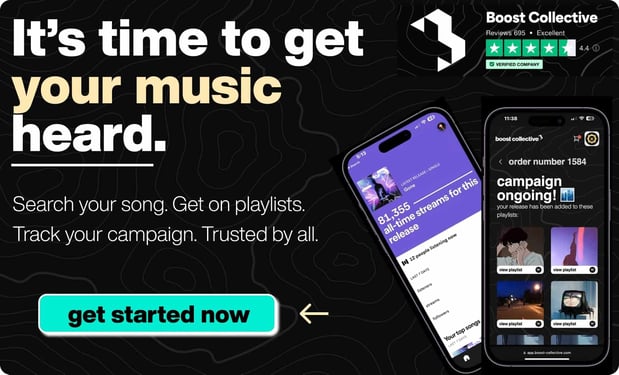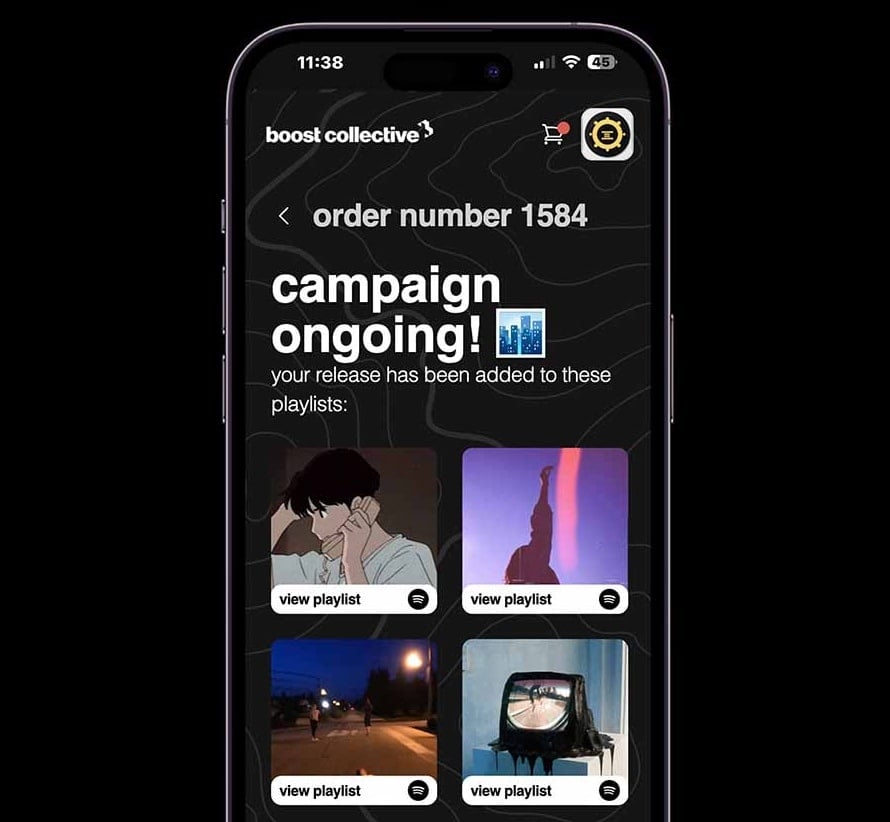Overview

As a musician with a music career or a music journalist or a marketer with a music career, you may have found yourself wondering what separates successful artists from those that never seem to make it.
The answer may lie in using data analytics to inform their marketing strategies.

Introduction
In the highly competitive hip-hop, music video, and industry, having a solid marketing plan can differentiate between success and obscurity among other musicians.
As a result, understanding the value of data analytics in music marketing is crucial for artists and marketers who want to stay ahead of the curve.
Music writing music marketing and music promotion and album release is no longer a guessing game.
With the right analytics tools, you can gain insights into your audience's behavior, preferences, and motivations.
By using this information to inform your marketing mix strategies, you can target your marketing mix to the right audience of people at the right time and get better results.
In this feature, we'll explore the value of analytics in music marketing and show you how to use data to create a successful marketing plan for music blogs on major streaming platforms everywhere.

Understanding Analytics In Music Marketing
Analytics In The Context Of Music Marketing
Analytics in the context of the music business and marketing refers to the use of data and metrics to analyze and understand various aspects of the music industry, business, performance, and consumer behavior.
This may include analyzing streaming and download numbers, social media engagement, website traffic, demographic data, and more to gain insights into how audiences are interacting with a time-consuming artist's new, music release.
Music marketers may use analytics to identify trends and patterns in consumer behavior, such as which types of music videos are most popular in certain geographic regions or among specific age groups.
This information can be used to inform marketing strategies, such as targeting specific audiences or target markets with tailored advertising campaigns or adjusting promotional tactics based on consumer preferences.
Additionally, analytics can help music marketers track the success of their marketing plans and campaigns and measure the return on investment (ROI) of various music marketing campaigns and efforts.
By analyzing data over time, marketers can identify which strategies are most effective in the target market and refine their approach to maximize the impact of their efforts.
The Types Of Analytics And Data That Are Important To Gather

Music marketing analytics and data are crucial for understanding your audience and effectively promoting your own music.
Some of the key types of music marketing analytics and data that are important to gather to begin marketing new music include:
-
Streaming Data: This includes information on the number of streams, where they are coming from, which platforms are being used, and how long people are listening.
-
Social Media Engagement: Data on likes, shares, and comments on social media platforms like Facebook, Twitter, and Instagram can help you understand how your audience is engaging with your music.
-
Sales And Revenue: Tracking sales figures and revenue can help you understand how your music performs in the market and identify areas where you can improve your marketing efforts.
-
Demographic Information: Knowing who your fans are - their age, gender, location, and interests - can help you tailor your marketing strategy and create content that resonates with them.
-
Web Analytics: Monitoring website traffic and engagement can help you identify which pages are popular and which ones need improvement. This information can also help you optimize your website for search engines and improve your online presence.
-
Email Marketing: Tracking email open and click-through rates can help you understand how engaged your email list is and identify which types of content and offers are most effective at driving conversions.
-
Influencer And Brand Partnerships: Data on the success of past collaborations with influencers and other brands can help you identify potential new partners and develop more effective collaborations in the future.
By gathering and analyzing this data, you can make informed decisions about your music, album release name, artist brand, and music marketing strategy and improve your album release chances of reaching a larger audience.
Benefits Of Using Analytics In Music Marketing
Analytics Help Artists Reach Their Target Audience

Analytics can be a powerful tool for musicians to make informed decisions about their marketing strategies.
Here are some ways in which analytics can help:
-
Audience Insights: Analytics can provide insights into the demographics of your audience, their geographic location, their interests, and their behaviors. This information can help you tailor your marketing efforts to reach and engage your audience better.
-
Social Media Analytics: Social media platforms like Facebook, Instagram, and Twitter provide detailed analytics that can help musicians track the engagement, reach, and demographics of their followers. These insights can help you understand which platforms are most effective for promoting your music and where to focus your marketing efforts.
-
Sales Data: Analytics can also help you track your sales data, including the number of streams, downloads, and physical sales. By analyzing this data, you can identify which songs or albums are the most popular and which marketing efforts are driving the most sales.
-
Campaign Performance: Analytics can help you track the performance of your marketing campaigns. By analyzing the engagement and sales data, you can determine the most effective campaigns and adjust your marketing strategies accordingly.
Overall, analytics can help musicians make data-driven decisions about their social media marketing and strategies. By understanding their audience, social media performance, sales data, and their marketing campaign and performance, musicians can optimize their social presence marketing effort
Analytics Can Help Artists Identify And Target Their Audience More Effectively

Analytics can be a powerful tool for artists to understand their audience better and create more targeted marketing strategies.
By analyzing data on who is listening to their music or attending their events, artists can gain insights into their fans' preferences, behavior, and demographics.
Here are a few ways analytics can help artists identify and target their audience more effectively:
-
Understanding Fan Demographics: Analytics tools can help artists gain a better understanding of their fan demographics, including age, gender, location, and interests. This information can help them tailor their marketing efforts to better resonate with their target audience. For example, if an artist finds that a large portion of their fan base is located in a particular city, they can focus their marketing efforts on that area.
-
Analyzing Listening Behavior: By analyzing data on how fans listen to their music, artists can gain insights into their preferences and habits. This information can help artists create targeted marketing campaigns that focus on specific platforms or types of content. For example, if an artist finds that a large portion of their fans listen to their music on streaming services, they can create targeted ads for those platforms.
-
Monitoring Social Media Engagement: Social media analytics tools can help artists track engagement on their social media channels, such as likes, comments, and shares. This information can help them understand which types of content resonate with their fans and adjust their social media strategy accordingly.
-
Tracking Ticket Sales: Analytics tools can also help artists track ticket sales for their events. By analyzing data on who is purchasing tickets, artists can gain insights into their fan demographics and adjust their marketing strategies to better target their audience.
Overall, analytics can be a valuable tool for artists looking to identify and target their audience more effectively. By gaining insights into their fans' preferences and behavior, artists can create more targeted marketing campaigns that are more likely to resonate with their audience and drive engagement with future fans.
How Analytics Can Help Artists Track The Success Of Their Marketing Campaigns

Analytics can play a crucial role in helping artists track the success of their marketing campaigns. Here are some ways analytics can be used for this purpose:
-
Social media analytics: Artists can use social media analytics tools to track the engagement and reach of their social media posts. This can help them understand which posts are resonating with their audience and adjust their content accordingly.
-
Website analytics: Artists can use website analytics tools, such as Google Analytics, to track the traffic to their website, the most popular pages, and the sources of that traffic. This can help them understand which marketing channels are driving the most traffic to their site.
-
Email marketing analytics: Artists can use email marketing analytics tools to track the performance of their email campaigns. This can include open rates, click-through rates, and conversions. By tracking these metrics, artists can understand which emails resonate with their audience and adjust their email campaigns accordingly.
-
Sales data: Artists can use sales data to track the performance of their marketing campaigns. This can include tracking the number of albums, merchandise, or tickets sold during a specific time period. By tracking sales data, artists can understand which marketing campaigns are driving the most sales and adjust their strategies accordingly.
Analytics Tools For Music Marketing

There are a variety of analytics tools that can be used in music marketing to help artists, labels, and managers make informed decisions about their own marketing plans and strategies.
Here are some popular ones:
Spotify For Artists
This tool allows artists to track their streaming data, understand their audience demographics, and gain insights into how fans are discovering music, and interacting with their favorite artists, with other artists, and with their music on Spotify.
Apple Music For Artists
Similar to Spotify for Artists, this tool provides detailed insights into an artist's streaming data on Apple Music, allowing them to track their performance, understand their audience, and improve their marketing strategies across streaming platforms.
YouTube Analytics
This tool provides comprehensive data on an artist's YouTube channel, including view counts, engagement metrics, and audience demographics. This can help artists optimize their video content and tailor their marketing efforts to their audience.
Google Analytics
This tool is useful for tracking website traffic and understanding how visitors are interacting with an artist's website. This can help artists optimize their websites for better user experience and drive more traffic to their online presence.
Hootsuite Insights
This tool provides real-time social media analytics and can help artists track engagement metrics across multiple other social media accounts, sites, and online platforms. This can help artists optimize their social media content and understand how their audience is responding to their marketing efforts.
SoundScan
This is a tool that tracks sales data for music and provides insights into market trends and consumer behavior. This can be particularly useful for labels and managers who as well as music bloggers and journalists are looking to understand the competitive landscape and make informed decisions about marketing strategies.
Shazam For Artists
This tool provides insights into how music fans everywhere are discovering an artist's music through the Shazam app. This can be useful for understanding which songs are resonating with audiences and tailoring marketing music promotion efforts for other artists accordingly.
Overall, there are a variety of analytics tools available to help music marketers make informed decisions about their marketing strategies. By leveraging these tools, other musicians, artists, labels, and managers can optimize their marketing efforts and create music marketing that better connects with their target audience.
Best Practices For Incorporating Analytics Into Your Music Marketing Plan

Integrating analytics into your music marketing plan can help you track and measure the success of your own music marketing strategy, goals, and efforts. Here are some tips on how to do it effectively:
-
Define Your Goals: Before using analytics, you need to define your goals. What do you want to achieve with your music marketing plan? Do you want to increase your fan base, sell more music, or increase your social media following? Knowing your goals will help you focus on the metrics that matter.
-
Identify Your Metrics: Once you have your goals, you need to identify the metrics that will help you track your progress. For example, if you want to increase your fan base, you can track the number of new followers on your social media accounts or the number of new subscribers to your mailing list.
-
Use the Right Tools: There are many analytics tools available that can help you track your metrics. Google Analytics, for example, can help you track your website traffic, while social media analytics tools like Hootsuite can help you track your social media engagement.
-
Monitor Your Metrics: Once you have set up your analytics tools, you must monitor your metrics regularly. This will help you identify trends and make adjustments to your marketing plan as needed.
-
Use Your Analytics To Make Informed Decisions: Finally, use your analytics to make informed decisions about your music marketing plan. For example, if you notice that your social media engagement is low, you may need to adjust your social media strategy or focus on a different platform.
By following these tips, you can effectively integrate analytics into your music marketing plan and make data-driven decisions that can help you achieve your goals.
The Importance Of Setting Clear Goals And KPIs

Setting clear goals and KPIs (Key Performance Indicators) is essential for effective music marketing analytics.
Without clear goals and KPIs, it is difficult to track the success of marketing campaigns and make informed decisions about future strategies.
Here are some reasons why setting clear goals and KPIs for marketing performance, is important in music marketing analytics:
-
Helps To Measure Success: Clear goals and KPIs provide a benchmark for measuring the success of marketing campaigns. By setting specific targets, you can track progress and identify areas that need improvement.
-
Facilitates Decision-Making: With clear goals and KPIs in place, you can make informed decisions about which marketing strategies are working and which ones need to be revised. This enables you to allocate resources more effectively and optimize your marketing efforts.
-
Improves Accountability: When everyone involved in the marketing process understands the goals and KPIs, it creates a culture of accountability. Team members can take ownership of their responsibilities and work towards achieving the set targets.
-
Enhances Communication: Clear goals and KPIs provide a common language for discussing marketing objectives and strategies. This facilitates better communication among team members and ensures that everyone is working towards the same goals.
-
Enables Optimization: By tracking KPIs and analyzing data, you can identify areas where your marketing campaigns are falling short and make changes to improve performance. This allows you to optimize your marketing efforts and achieve better results.
In conclusion, setting clear goals and KPIs is essential for effective music marketing analytics. It helps to measure success, facilitates decision-making, improves accountability, enhances communication, and enables the optimization of key marketing channels.
By setting specific targets and tracking KPIs, you can optimize your marketing efforts and achieve better results.
Tips For Interpreting And Using Analytics Data To Inform Music Marketing Decisions

-
Define Your Objectives: Start by clearly defining what you want to achieve with your marketing campaign. This will help you identify the metrics that matter most to your objectives.
-
Set Up Tracking: Make sure that you have set up analytics tracking properly to capture the relevant data. This may include setting up conversion tracking, event tracking, and other relevant metrics.
-
Analyze The Data: Use analytics tools to analyze the data and identify patterns, trends, and insights. Look at metrics such as traffic sources, user behavior, conversion rates, engagement levels, and revenue.
-
Segment Your Data: Segment your data to identify patterns and insights that are specific to certain audiences, devices, or demographics. This will help you tailor your marketing efforts to specific groups.
-
Test And Iterate: Use the insights you gain from your analytics data to test and iterate your marketing campaigns. Continuously improve your approach based on the data to achieve better results.
-
Align Your Metrics: Ensure that the metrics you are using are aligned with your objectives. For example, if your objective is to increase sales, focus on metrics such as conversion rates and revenue, rather than vanity metrics such as pageviews.
-
Use Visualization: Use data visualization tools to help you understand and communicate your analytics data. This will help you identify patterns and insights more quickly.
-
Stay Up-To-Date: Stay up-to-date with the latest analytics tools and trends to ensure that you are using the most effective tools and techniques to analyze and interpret your data.
-
Work With Experts: Consider working with experts in data analytics or digital marketing to help you interpret and use your analytics data effectively. They can provide insights and recommendations that you may not have considered otherwise.
The Wrap-Up

In conclusion, analytics is a valuable tool for any musician, record label, or music marketer.
By leveraging data, you can gain valuable insights into your audience, measure the success of your marketing campaigns, get new audiences, identify trends and opportunities, improve your fan experience, and create data-driven strategies.
Whether you’re a rising star or an established artist, analytics can help you achieve success in the electronic music industry.
Get your music on playlists now.
It’s time you get your exposure and listeners up - playlisting by Boost Collective has been trusted by 50,000+ artists worldwide.
It’s easy: Search your song, get on playlists, and track your campaign.
What’re you waiting for? Tap in - and get added to playlists in 24 hours.
Join Boost Collective for free here.

